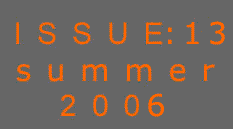
MEP Forum discusses economics of nuclear energy
The latest meeting of the MEP Forum for the Future
of Nuclear Energy took place on 18 May 2006, in Strasbourg, under
the chairmanship of MEP Terry Wynn (UK, PSE). On the agenda was
a discussion about the economics of nuclear energy. The two guest
speakers who addressed attendees were Stephen Thomas from the
University of Greenwich and Prof. Alfred Voss from Stuttgart University.
Each presented his own, differing, views on the competitiveness
of nuclear energy.
Stephen Thomas spoke first and began by stressing
that the economics of nuclear energy are controversial because
forecasts are usually overly optimistic and made by people with
a vested interest in nuclear energy. In addition, the record of
such forecasts is generally quite poor as there is very little
data on actual construction and operation costs. Thomas added
that nuclear power is capital intensive and that in a competitive
market situation the cost of capital is very high. As a result,
the liberalisation of the electricity market is a bad thing for
the nuclear industry. In his view, more than just political support
is needed for a nuclear revival to really take place; plant owners
need guarantees that commercial and technical risks will not impact
upon them negatively. In conclusion, Stephen Thomas argued that
some costs, like the cost of waste disposal and decommissioning,
can only be guessed at because there has always been a distinct
lack of experience in this area. Furthermore, Thomas said that
the nuclear sector is facing a skills shortage that will prove
to be a considerable obstacle to the further development of nuclear
power.
Prof. Voss then took the floor. He gave a comparative
analysis of the electricity generation costs of different energy
options. For nuclear power, it is the construction costs that
are the largest cost contributor. However, he added that from
a cost perspective generating electricity from nuclear is more
competitive than that generated from gas, lignite, and hard coal
- and much more competitive than wind power.
Prof. Voss stressed that investors in the power
generation sector face three types of risks in a liberalised market:
electricity price and volume risks, fuel price risks and political
and regulatory uncertainties due to market interventions such
as subsidies, taxes, safety regulations or emissions controls.
Taking into account the profit return on investment that can be
had and the internal rate of the return on investment, Prof. Voss
concluded that investments in nuclear energy sector are profitable
and that nuclear energy can indeed be competitive in a liberalised
market.
After the presentations the floor was open to
questions and comments from MEP’s. Many questions focused
on the issue of decommissioning and the cost of waste disposal.
Many MEP’s wondered how Member States will ensure that the
money set aside for this purpose will actually be made available
and will be adequate. They also questioned who should pay for
disposal and whether it would require public funding.
The issue of lack of investment in nuclear was
raised and a question about the invisibility of the nuclear renaissance
was also asked. MEPs were also interested in the availability
of uranium and about whether knowledge and expertise in the nuclear
sector was being slowly eroded. In answer to some of these questions,
Stephen Thomas said that a monopoly situation would be the best
scenario for nuclear investors because consumers would then pay
for everything. With regard to uranium availability, he acknowledged
that there are enough supplies to meet current levels of nuclear
energy production for a long time to come, but added that current
levels could not help to curb the effects of global warming. To
tackle this issue adequately, according to Thomas, new breeder
reactor technology would be needed, which would raise concerns
with regards to the problem of proliferation.
Prof. Voss responded differently to these questions.
He said that in the figures he presented the costs of decommissioning
and waste management were included and that in many countries
a part of the electricity bill that consumers pay goes to a special
fund for decommissioning and waste management. He further argued
that there is no noticeable nuclear revival because investors
fear political and regulatory instability. Investments in other
energy technologies occur because they are subsidised.
Terry Wynn thanked the speakers for provoking a lively and informative
debate.
Another MEP Forum debate is planned for September.
For more information on this file, contact Stella Brozek: stella.brozek@foratom.org
|





